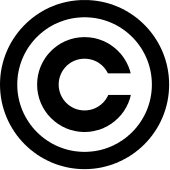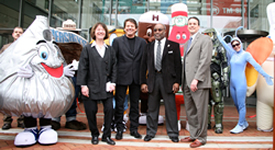 There's a lawsuit brewing around Harry Potter intellectual property rights, and this time it's not a rock band suing Jarvis Cocker and members of Radiohead over band-naming rights.
There's a lawsuit brewing around Harry Potter intellectual property rights, and this time it's not a rock band suing Jarvis Cocker and members of Radiohead over band-naming rights.
This time the lawsuit centers on a vague but important clause of U.S. Copyright Code known as "fair use:"
Notwithstanding the provisions of sections 106 and 106A, the fair use of a copyrighted work, including such use by reproduction in copies or phonorecords or by any other means specified by that section, for purposes such as criticism, comment, news reporting, teaching (including multiple copies for classroom use), scholarship, or research, is not an infringement of copyright. In determining whether the use made of a work in any particular case is a fair use the factors to be considered shall include—(1) the purpose and character of the use, including whether such use is of a commercial nature or is for nonprofit educational purposes;(3) the amount and substantiality of the portion used in relation to the copyrighted work as a whole; andThe fact that a work is unpublished shall not itself bar a finding of fair use if such finding is made upon consideration of all the above factors. from 17 USC s.107
Fair use is the reason why book reviewers can include quotes from sources they are critiquing, the reason teachers can hand out photocopies of sections of a published work to students, and why a student can use a chart from a published study in a research paper for school.
One of the historic problems with fair use is that it requires interpretation on the part of the person using a copyrighted work. Since copyright owners may not want to grant permissions, or may want to charge exorbitant fees, artists may take a gamble and use works without permission. If a suit is brought against the artist, the courts will determine if their use was fair or not; in the mean time, it's better than asking and being rejected.
The defense in the Harry Potter case are likely to argue that their use of Rowlings' ideas constitutes fair use as both work of literary criticism and as a transformative work, uses that are often considered fair.
Attorneys from Stanford Law School are defending this case. The outcome could have a major effect on the way copyright is interpreted in the future. I'll keep my eye on it.
In the mean time, for more information about copyright and fair use check out:
Fair Use, Free Use, and Use by Permission Lee Wilson. New York: Allworth Press, 2005. Available at SFPL.
Creative Commons
U.S. Copyright Office


